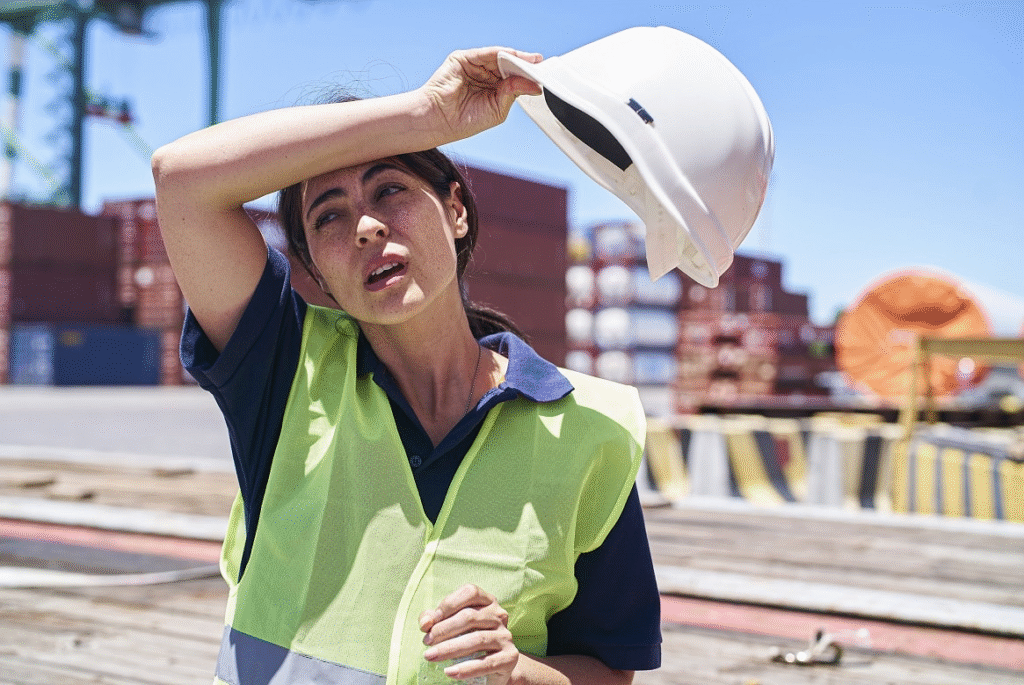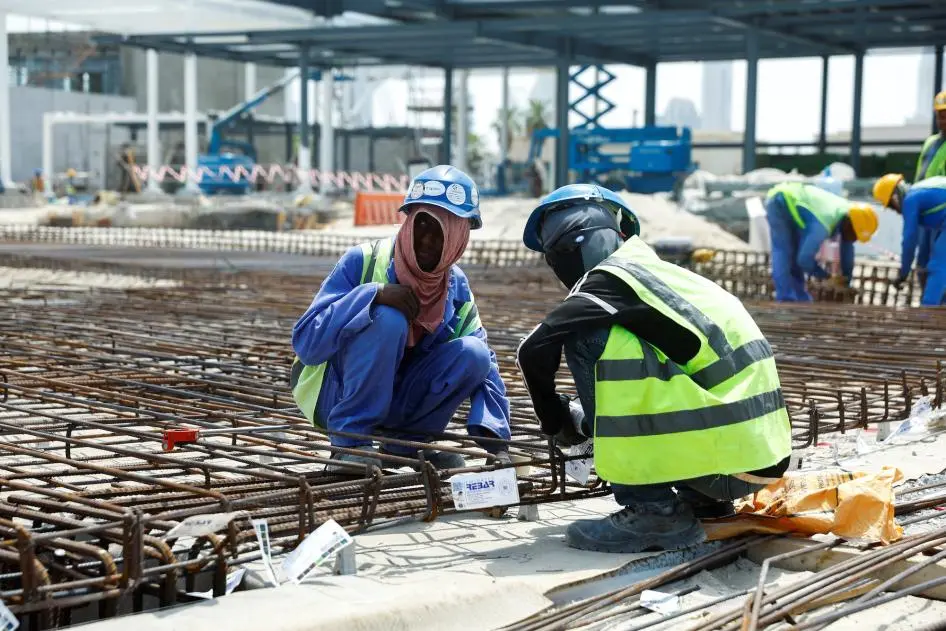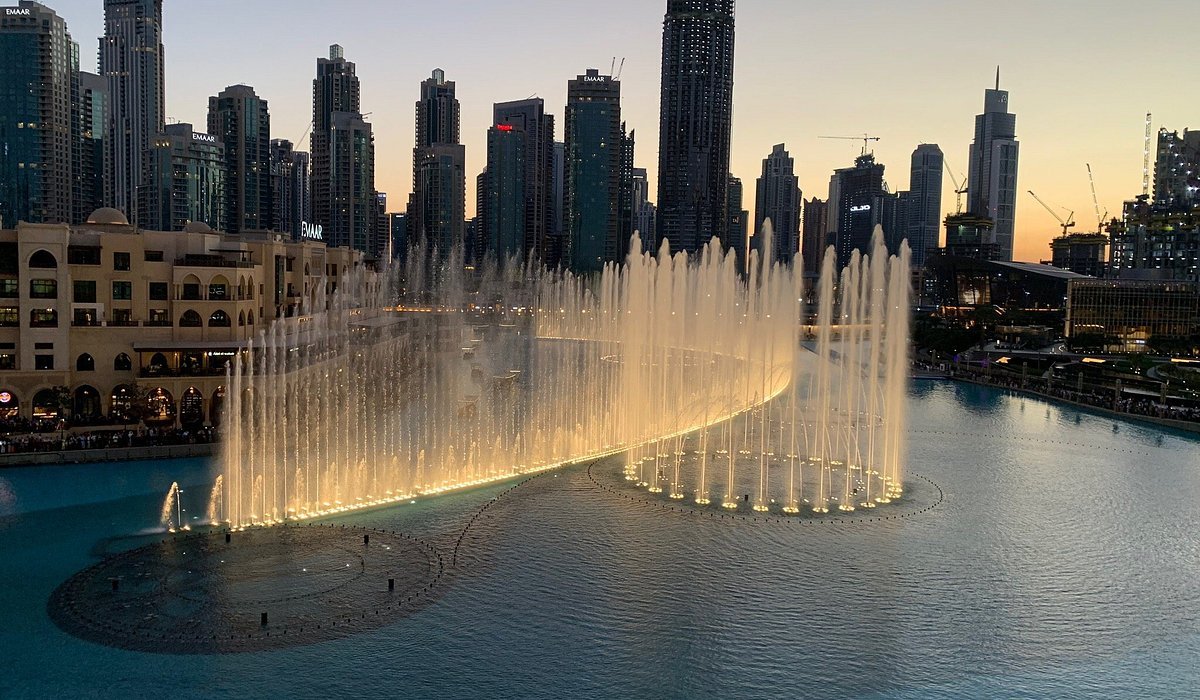Now Reading: Dubai’s Outdoor Workers Face Extreme Heat Risks: Are They Safe 2025?
-
01
Dubai’s Outdoor Workers Face Extreme Heat Risks: Are They Safe 2025?
Dubai’s Outdoor Workers Face Extreme Heat Risks: Are They Safe 2025?

Table of Contents
Dubai, known for its stunning skyscrapers and economic growth, is also home to thousands of outdoor workers who build its roads, buildings, parks, and public spaces. These men and women work tirelessly under the open sky, often in extreme heat, especially during the long summer months. As temperatures in Dubai can soar above 45°C (113°F), the safety and well-being of these outdoor workers have become a serious topic of discussion.
The Heat Challenge: Why Outdoor Worker Safety Matters

Dubai’s summer heat is no small matter. Between June and September, the UAE experiences extreme weather conditions with high humidity levels, making outdoor work extremely dangerous. Without proper safety measures, workers can suffer from heat stress, dehydration, sunburn, or even deadly heatstroke.
In fact, according to Dubai Municipality and the UAE Labour Law, heat-related risks are among the top hazards faced by construction workers, delivery staff, cleaners, and maintenance personnel. Employers are legally required to ensure that their staff are protected against heat-related illnesses, yet challenges remain in ensuring complete compliance across all sectors.
Midday Break Rule: A Key Safety Measure
One of the most important laws in protecting outdoor workers is the Midday Break Rule. This regulation mandates that all outdoor work must stop between 12:30 PM and 3:00 PM during the summer months. Introduced in 2004, the Midday Break has been credited with reducing heat-related illnesses among workers.
Violating this rule can result in heavy penalties. The Ministry of Human Resources and Emiratisation (MoHRE) imposes fines of up to AED 5,000 per worker (with a maximum of AED 50,000 for multiple violations) on companies that do not follow the rule. Regular inspections are carried out across worksites to ensure strict adherence.
In 2024, MoHRE confirmed that more than 65,000 inspection visits were conducted to enforce this safety rule, highlighting the government’s commitment to worker safety.
Additional Safety Measures for Outdoor Workers
While the midday break is crucial, other measures are equally important to keep workers safe:
- Provision of Cool Drinking Water:
Employers must provide clean, cold water, shaded rest areas, and cooling fans at work sites. - Distribution of Salts and Electrolytes:
Workers are encouraged to take oral rehydration salts (ORS) to prevent dehydration and muscle cramps. - Protective Gear:
Appropriate clothing such as light-colored uniforms, hats, sunglasses, and sunscreen lotions must be provided. - Training and Awareness Programs:
Workers receive training on the symptoms of heat stress, ways to stay cool, and emergency procedures in case of heatstroke. - First Aid Readiness:
All outdoor worksites are required to have first aid kits and trained staff for immediate medical help.
Dubai’s Smart Solutions: Technology for Worker Safety
Dubai is not just relying on traditional safety measures; technology is playing a bigger role than ever before. Some construction companies have started using smart helmets and wearable devices that monitor body temperature, heart rate, and hydration levels. These devices send alerts to supervisors if a worker shows signs of heat exhaustion.
Moreover, apps such as MoHRE’s smart services app allow workers to report violations anonymously if their safety is being compromised.
Voices from the Ground
Many outdoor workers in Dubai appreciate these efforts. Ramesh Kumar, a 29-year-old construction worker from Nepal, says,
“The midday break helps us a lot. Earlier, some of us would get dizzy or fall sick because of the heat. Now we can rest and drink water in the shade during the hottest hours.”
However, some labor rights groups argue that more can still be done. They suggest introducing mandatory health checks before the summer season and increasing rest breaks even outside the midday hours.
Corporate Responsibility: What Employers Must Remember
Companies operating in Dubai have a social and legal responsibility to ensure the safety of their workers. This not only prevents accidents and illnesses but also improves productivity and worker morale. Firms found breaking safety rules face not only fines but also reputational damage that can affect future contracts and partnerships.
Experts recommend that companies adopt “Heat Stress Management Plans”, which include detailed procedures for extreme weather conditions. These plans should be reviewed regularly, especially during Dubai’s peak summer.
Government’s Long-Term Commitment

The Dubai government continues to make worker welfare a top priority. In addition to inspections, authorities run awareness campaigns, distribute informative leaflets in multiple languages, and offer training sessions to ensure both employers and workers understand their rights and responsibilities.
Furthermore, the UAE Vision 2031 outlines strategies to improve labor conditions, including those working in difficult environments like outdoor sites. This includes technological upgrades, worker-friendly policies, and partnerships with global labor organizations.
Conclusion: A Safer Future for Outdoor Workers in Dubai
Protecting outdoor workers is not just about following laws — it is a human, social, and economic responsibility. As Dubai continues to grow, so does the importance of ensuring the health and safety of those who are literally building the city’s future.
While measures like the Midday Break Rule, modern technology, and strict inspections are making a real difference, continuous improvement is necessary. All stakeholders — government, businesses, and the public — must work together to make Dubai a global model for outdoor worker safety.
In the end, safeguarding workers ensures not only their well-being but also the prosperity and progress of the entire city.
Read More:- Shobha Realty Launches Its Most Luxurious Project Yet—Full Details Inside 2025



















